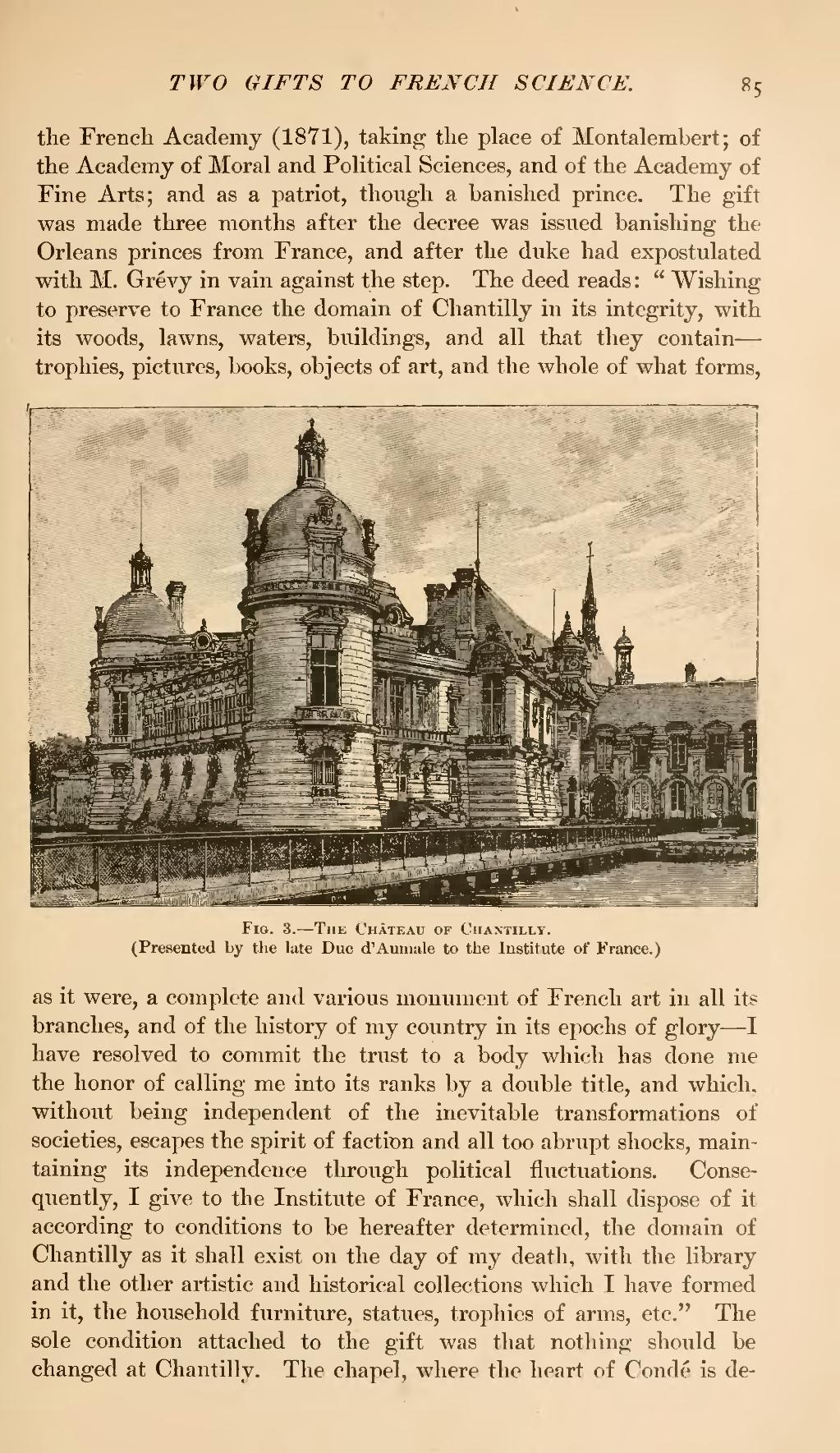the French Academy (1871), taking the place of Montalembert; of the Academy of Moral and Political Sciences, and of the Academy of Fine Arts; and as a patriot, though a banished prince. The gift was made three months after the decree was issued banishing the Orleans princes from France, and after the duke had expostulated with M. Grévy in vain against the step. The deed reads: "Wishing to preserve to France the domain of Chantilly in its integrity, with its woods, lawns, waters, buildings, and all that they contain—trophies, pictures, books, objects of art, and the whole of what forms,

Fig. 3.—The Chateau of Chantilly.
(Presented by the late Due d'Aumale to the Institute of France.)
as it were, a complete and various monument of French art in all its branches, and of the history of my country in its epochs of glory—I have resolved to commit the trust to a body which has done me the honor of calling me into its ranks by a double title, and which, without being independent of the inevitable transformations of societies, escapes the spirit of faction and all too abrupt shocks, maintaining its independence through political fluctuations. Consequently, I give to the Institute of France, which shall dispose of it according to conditions to be hereafter determined, the domain of Chantilly as it shall exist on the day of my death, with the library and the other artistic and historical collections which I have formed in it, the household furniture, statues, trophies of arms, etc." The sole condition attached to the gift was that nothing should be changed at Chantilly. The chapel, where the heart of Condé is de-

